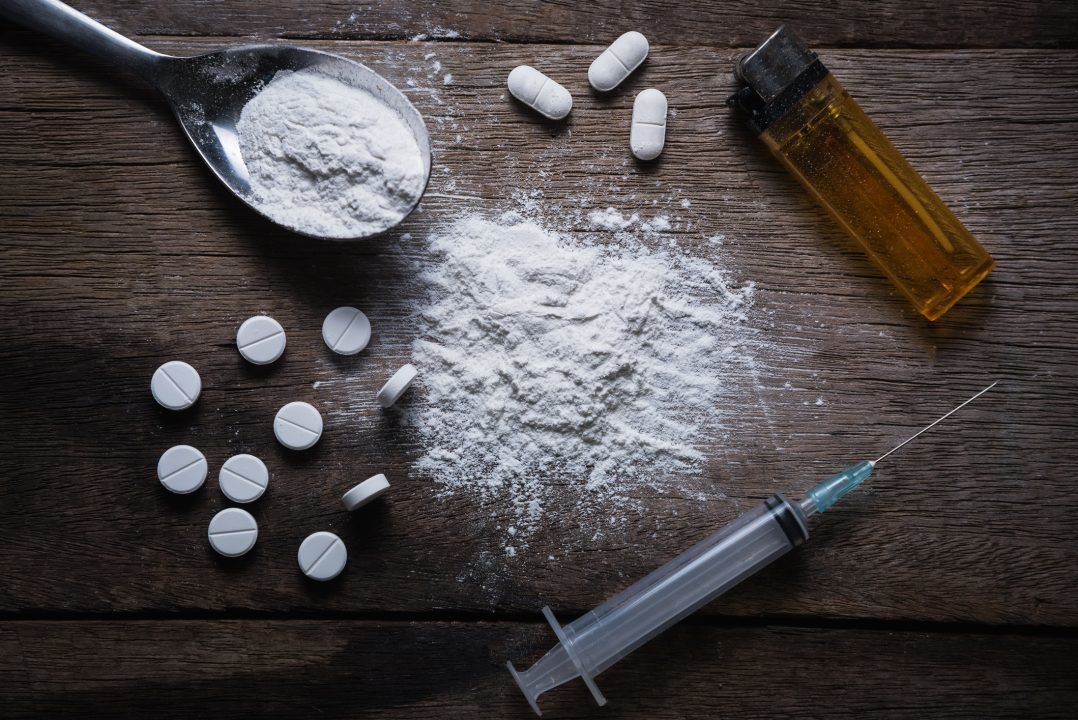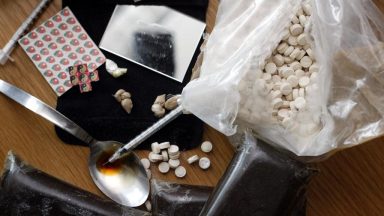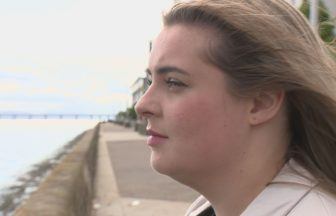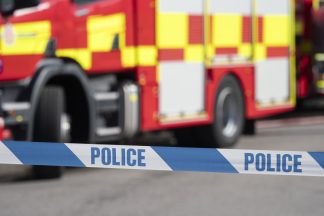Drug-related deaths in Scotland have fallen to their lowest level since 2017, but remain the highest in the UK.
A total of 1,051 people died as a result of drug-related poisonings, down from 1,330 the previous year – a decrease of 279.
Opiates and opioids, including heroin, morphine and methadone, were implicated in 82% of those, according to data published by the National Records of Scotland (NRS).
Benzodiazepines, including etizolam, commonly known as street Valium, were involved in 601 deaths, a fall from last year but still a 15-year surge from 2008, when the substance was implicated in just one.
Glasgow City and Dundee City had the highest rates of drug misuse deaths over the last five years while East Renfrewshire and Aberdeenshire had the lowest rates.
The rate of drug poisoning deaths in Scotland was 2.7 times as high as the UK average in 2021 – the most recent year that data is available for the UK as a whole.
The NRS figures also revealed deaths as a result of drug misuse were still far more common than they were in 2000.
The average age of drug misuse deaths has also increased in that time from 32 to 45.
Scotland’s drugs and alcohol policy minister, Elena Whitham MSP, said she was “pleased” to see the number of deaths trending downwards, but admitted they were “still too high”.
She said: “My sympathy goes out to all those affected by the loss of a loved one through drugs.
“While I am pleased to see that hundreds of families have been spared this agony and lives have been saved, every life lost is a tragedy.
“I will never underestimate the scale of the challenge we continue to face, including responding to new threats such as synthetic opioids and stimulant use.”
The vast majority of drug-related deaths involved people who took more than one substance, known as “poly” use.
Gabapentin and/or pregabalin were implicated in 367 deaths, while cocaine was involved in 371.
New psychoactive substances (NPSs), which have been made to mimic the effects of illegal substances such as cocaine or ecstasy, were involved 476 deaths – the majority of which were benzodiazepines, for example, etizolam.
Julie Ramsay, head of demographic statistics at NRS, said: “While drug misuse deaths have been rising over the last two decades, with a particularly sharp increase after 2013, today’s statistics show the biggest year on year decrease since the series began.
“The statistics provide some insight into the people who are most likely to die from drug misuse.
“Those living in the most deprived areas of Scotland are almost 16 times as likely to die from drug misuse compared to people living in the least deprived areas.”
She added: “Males are twice as likely to die from drug misuse than females, however the fall in deaths in 2022 was much larger for males than for females.
“The age profile of drug misuse deaths has become older over time, the average age of people who died from drug misuse deaths has increased from 32 in 2000 to 45 in 2022.”
Opponents branded the figures “appalling,” adding families affected by the deaths were owed an explanation as to why the Scottish Government “took their eye off the ball”.
Scottish Conservatives leader Douglas Ross reiterated his call for a “right to recovery bill,” which would enshrine in law the right of those struggling with addiction to access their preferred treatment method unless a clinician rules it harmful.
“These heart-breaking figures illustrate the scale of Scotland’s drugs-death crisis – yet behind them lie 1,051 avoidable personal and family tragedies,” he said.
“SNP ministers have a duty to explain why, in Nicola Sturgeon’s words, they took their eye off the ball as this national emergency spiralled out of control and cut money from drug treatment programmes.
“If they are ever to get fully on top of a crisis which shames the nation, they must stop talking about decriminalisation of drugs and finally embrace the right to recovery Bill.
“This landmark legislation, which has the backing of experts in the field of addiction, would tackle the problem of accessing treatment by enshrining in law the right of everyone to receive a recovery programme tailored to their needs.”
Follow STV News on WhatsApp
Scan the QR code on your mobile device for all the latest news from around the country
































